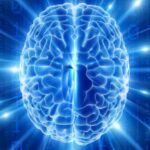
Joining forces with tech giants IBM and Microsoft, the Vatican has added its voice to those calling for the regulation of facial recognition technologies while also stressing the importance of the ethical development of artificial intelligence (AI).
The unlikely trio said that AI should consider human rights, operate transparently, and work reliably and without bias while respecting privacy.
“This asymmetry, by which a select few know everything about us while we know nothing about them, dulls critical thought and the conscious exercise of freedom,” said Pope Francis in a message read on his behalf at a conference in Rome attended by Microsoft president Brad Smith and IBM Executive Vice President John Kelly.
“Inequalities expand enormously; knowledge and wealth accumulate in a few hands with grave risks for democratic societies,” read the message.
His message — of which IBM and Microsoft are considered co-signers — made a specific reference to the rise of facial recognition technology and its potential abuses, and called for new forms of regulation that would be aimed at promoting transparency and ethical compliance.
The use of facial recognition in a wide variety of sectors has grown rapidly over the past years. Law enforcement agencies around the globe are increasingly turning to the technology to investigate crimes, while governments have been using it to register citizens and conduct elections.
IBM has recently partnered with the Vatican to provide AI technology at the Vatican-owned Bambino Gesu Children’s Hospital in Rome, a partnership that will focus on developing technology to help speed up the diagnosis and treatment of brain tumor patients.
On the matter of proceeding with caution when using AI tech, IBM had previously stated that it wants to have a doctor present whenever its AI technology makes a healthcare recommendation.
Vatican officials said they may release a papal document concerning AI, similar to the pope’s 2015 “Laudato Si” letter concerning the protection of the environment which was guided by meetings between the pope and scientists.
Source: Reuters
–
March 4, 2020 – by Tony Bitzionis








Follow Us